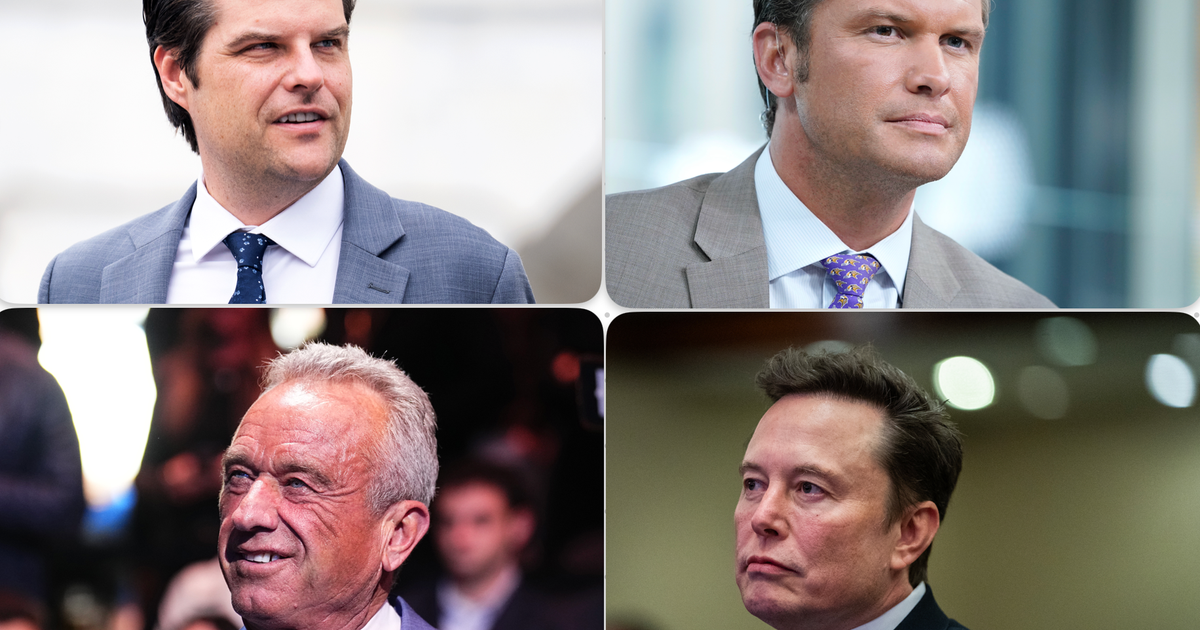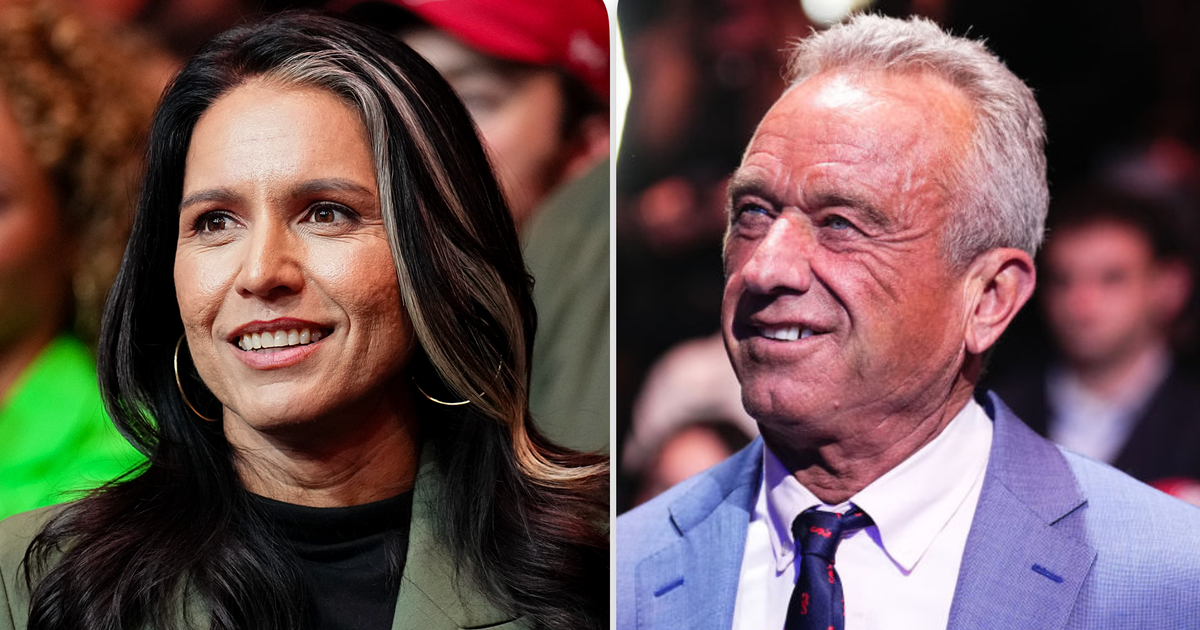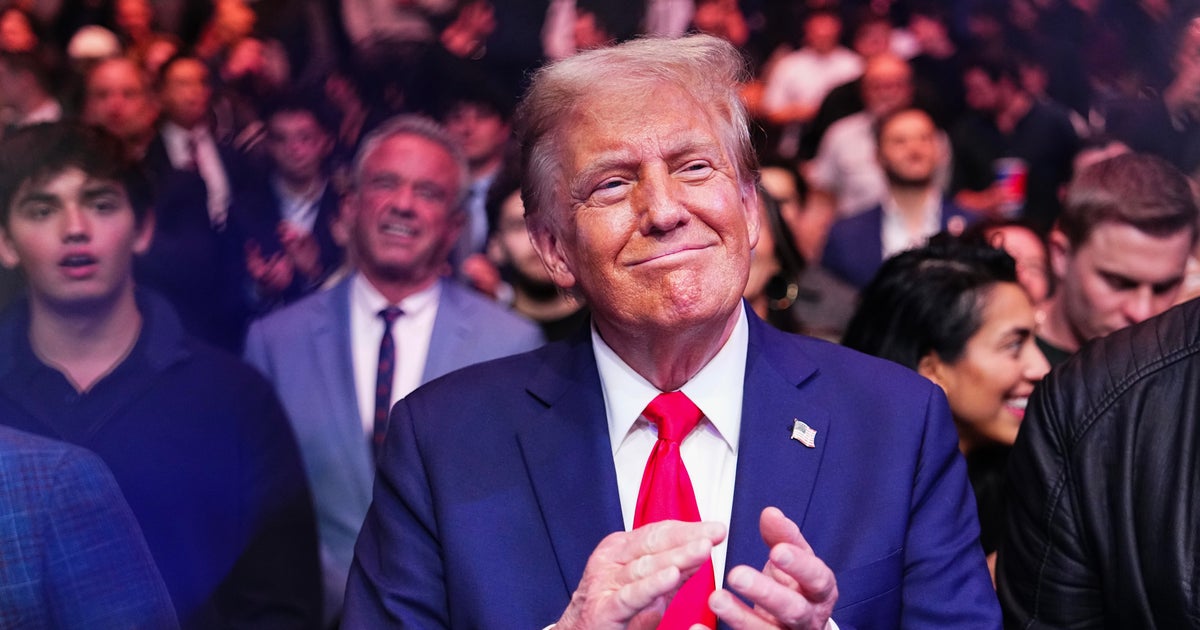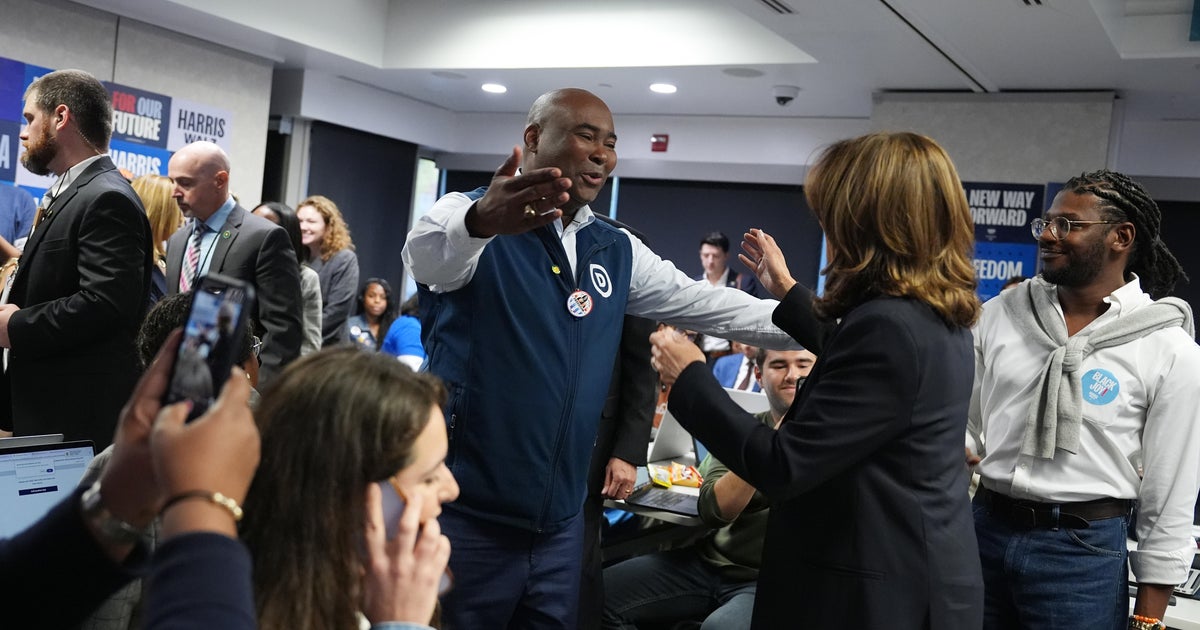Why some Democrats want to see more Supreme Court justices on the court
Earlier this month, former Attorney General Eric Holder said Democrats should consider expanding the number of seats on the Supreme Court. While he wasn't the first Democrat to invoke the FDR-era proposal of "court packing," he was arguably the most high profile to float the idea.
As liberals contemplate the possibility of a conservative majority that could last for a decade or more, given President Trump's appointment of two young conservatives, Justices Neil Gorsuch and Brett Kavanaugh, court packing is developing into a major subject of debate. Candidates competing in the 2020 Democratic presidential primary are considering the idea to varying degrees. Some have argued for adding justices to the court, while others have embraced the idea of term limits for justices. Still others have focused on ways to depoliticize what they believe has become a partisan court.
The idea has also invited pushback from critics concerned about the further disruption of institutions and from conservatives who have long seen Supreme Court seats as a mobilizing issue in elections.
What does "court packing" mean, and has it been done before?
Shortly after winning his second presidential term, Franklin Delano Roosevelt embarked on an ambitious overhaul of the Supreme Court. Irritated that he hadn't yet had a chance to nominate a Supreme Court justice, and frustrated by the high court's habit of striking down his New Deal projects, Roosevelt announced in 1937 that he wanted to bring it out of the "horse-and-buggy age."
Under Roosevelt's plan, for every justice who refused to retire within six months of turning 70, the president would be able to appoint a new justice. The plan would allow Roosevelt to appoint as many as six new justices using this mechanism, which would dramatically reshape the court. But the plan divided Democrats and was even criticized by Roosevelt's vice president, John Nance Garner, who worried that it would erode the separation of powers and put the U.S. on the path to dictatorship.
Nicknamed "court packing" by its critics, Roosevelt's plan would die in Congress despite substantial Democratic majorities in both chambers and cost the president much of his political capital. According to Roosevelt's secretary of agriculture and future vice president Henry Wallace, "the whole New Deal went up in smoke as result of the Supreme Court fight."
Why are Democrats talking about this now?
"The reason this is an issue can be summed up in four words: Gore, Garland, Gorsuch and Kavanaugh," says Todd Tucker, a fellow at the Roosevelt Institute. "The Garland episode was kind of the last straw...that's certainly why the temperature went through the roof."
Democrats pointed to Republicans' blocking then-President Obama's Supreme Court nominee Merrick Garland in their initial opposition to President Trump's nomination of Neil Gorsuch and Brett Kavanaugh. To confirm Gorsuch, Senate Majority Leader Mitch McConnell changed the rules of the upper chamber to require a simple majority support, rather than 60 votes, to get him on the bench. (Under Democratic Leader Harry Reid in the Obama administration, Democrats changed the threshold for executive appointments.)
Republicans have effectively made appointments to the Supreme Court and the judiciary an organizing principle of the party, and saw how their voters coalesced around President Trump on the issue in 2016. And Senate Republicans have been confirming Trump nominated judges at a record pace. After Kavanaugh's confirmation, Democrats have sought to motivate their voters in a similar way, with groups like Demand Justice focused expressly on the courts.
As the 2020 Democratic primary gets underway, candidates have been engaging in a debate about structural changes in order to pass big agenda items on the climate, voting rights, and other issues. "Half of it is economic and social issues, the other half is, how are you going to get it done?" says Ezra Levin, co-founder and co-executive director of the Indivisible Project. Levin says that "concern for democracy" consistently polls among top issues of concern for his group's grassroots members.
Democrats say such changes are a reflection of a desire to depoliticize the courts.
"The Supreme Court dismantled the Voting Rights Act, allowed a flood of dark money to corrupt our politics, and permitted hyper-partisan gerrymandering to rig the system against voters," said Kate Kendell, campaign manager for the group Pack the Courts. "Because the Court has undermined the institutions of democracy, court packing is the only way to restore the integrity of the political system."
What are the candidates proposing?
Former South Bend Mayor Pete Buttigieg was one of the earlier proponents of expanding the court. He has proposed increasing the number of seats to 15 justices, with five Democratic appointees and five Republicans ones, and an additional five who would be appointed by those 10 justices.
"This central objective that is to prevent the Supreme Court from continuing on this trajectory to become basically ruined by being a nakedly political institution," Buttigieg said in an interview with the podcast, "Pod Save America." "This idea of adding justices is one way to do it."
Former Texas Rep. Beto O'Rourke has also spoken favorably of that proposal, in addition to imposing term limits for justices. New Jersey Sen. Cory Booker, too, likes the idea of term limits. "I think I would like to start exploring a lot of options, and we should have an actual conversation term limit for Supreme Court justices might be one thing. It gives every president the ability to choose three," he said in an interview with MSNBC. Such a path would require a constitutional amendment, however, meaning approval from two-thirds of the House and Senate and three-fourths of the states.
Others have said they wouldn't rule out court expansion. "We are on the verge of a crisis of confidence in the Supreme Court," Kamala Harris told Politico. "We have to take this challenge head on, and everything is on the table to do that." Elizabeth Warren also told Politico that the conversation was worth having, and mentioned bringing appellate up to the high court as an option. New York Senator Kirsten Gillibrand has said that both adding justices and imposing term limits are ideas she would think about.
Are all Democrats on board? What are their concerns?
Minnesota Sen. Amy Klobuchar, a former prosecutor, said she would look at various proposals but said her priority is to get fair and qualified judges through the existing system.
"One of the problems we've had, even when President Obama came in, there's been a lot of delay to in starting that process," Klobuchar told CBS News' Ed O'Keefe. "I know a lot of people who are qualified people all across the country that I think would make excellent judges, some of whom are left hanging...so I think that is very important to get judges in place immediately."
And even those open to the idea of changes have expressed concern about escalating partisanship when it comes to the court. Booker told Politico that he would "really caution people about doing things that become a tit for tat throughout history."
"At a time where almost every single democratic institution from the press to the judiciary to the integrity of the ballot box is under attack from without this country and from within this country, I think we have to very soberly decide these issues," O'Rourke told CBS News when asked about the impact of making dramatic institutional changes. "If we were to change the composition of the Supreme Court, that should not be done by Democrats or Republicans. That's a conversation for the entire country."
Colorado Sen. Michael Bennet, who is contemplating a 2020 run, said Democrats should focus on winning back the White House to solve issues. In an interview with the Washington Post, he banged his head on the table when asked what he thought about expanding the Supreme Court. "Having seen up close just how cynical and how vicious the tea party guys and the Freedom Caucus guys and Mitch McConnell have been, the last thing I want to do is be those guys," he said.
But proponents of the idea say the conversation is critical. "The burning issues of the day require big structural changes to the country's economy and democracy...What you're seeing a lot in this cycle are proposals that envision a longer term trajectory in the country," says Tucker, of the Roosevelt Institute. "We're in the middle of a 10- or 20-year conversation that will hopefully get us to the better place."




